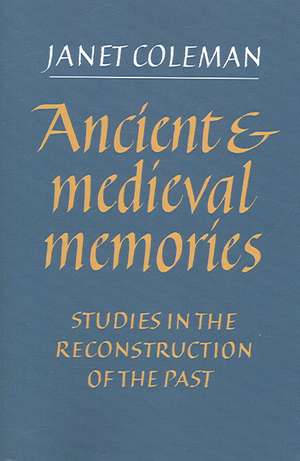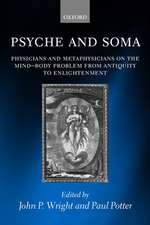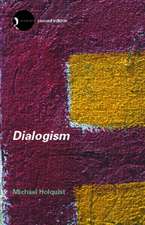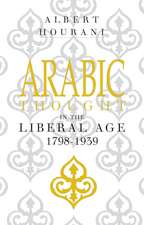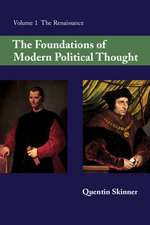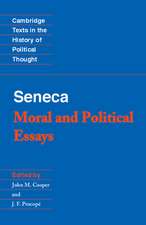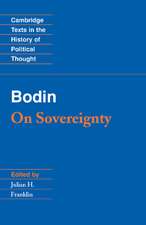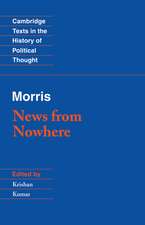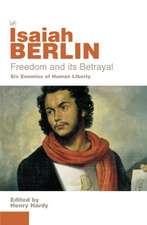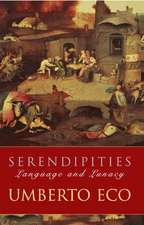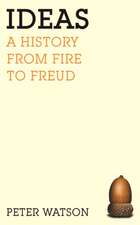Ancient and Medieval Memories: Studies in the Reconstruction of the Past
Autor Janet Colemanen Limba Engleză Paperback – 7 sep 2005
| Toate formatele și edițiile | Preț | Express |
|---|---|---|
| Paperback (1) | 359.77 lei 6-8 săpt. | |
| Cambridge University Press – 7 sep 2005 | 359.77 lei 6-8 săpt. | |
| Hardback (1) | 963.51 lei 6-8 săpt. | |
| Cambridge University Press – 29 ian 1992 | 963.51 lei 6-8 săpt. |
Preț: 359.77 lei
Nou
Puncte Express: 540
Preț estimativ în valută:
68.84€ • 72.13$ • 56.91£
68.84€ • 72.13$ • 56.91£
Carte tipărită la comandă
Livrare economică 12-26 aprilie
Preluare comenzi: 021 569.72.76
Specificații
ISBN-13: 9780521019378
ISBN-10: 0521019370
Pagini: 668
Dimensiuni: 153 x 229 x 40 mm
Greutate: 0.97 kg
Ediția:Revised
Editura: Cambridge University Press
Colecția Cambridge University Press
Locul publicării:Cambridge, United Kingdom
ISBN-10: 0521019370
Pagini: 668
Dimensiuni: 153 x 229 x 40 mm
Greutate: 0.97 kg
Ediția:Revised
Editura: Cambridge University Press
Colecția Cambridge University Press
Locul publicării:Cambridge, United Kingdom
Cuprins
Introduction; Part I. The Critical Texts of Antiquity: 1. Plato; 2. Aristotle; 3. Cicero; 4. Pliny and Roman naturalists on memory; Borges's Funes the Memorious; 5. Plotinus and the early neoplatonists on memory and mind; 6. Augustine; 7. Augustine, De Trinitate; Part II. The Practice of Memory During the Period of Transition from Classical Antiquity to the Christian Monastic Centuries: 8. The early monastic practice of memory: Gregory the Great; Benedict and his rule; 9. Bede, monastic grammatica and reminiscence; 10. Monastic memory in service of oblivion; 11. Cistercian 'blanched' memory and St Bernard; 12. Twelfth-century Cistercians: the Boethian legacy and the physiological issues in Greco-Arabic medical writings; Part III. The Beginnings of the Scholastic Understanding of Memory: 13. Abelard; 14. Memory and its uses: the relationship between a theory of memory and twelfth-century historiography; Part IV. Aristotle Neoplatonised: The Revival of Aristotle and the Development of Scholastic Theories of Memory: 15. Arabic and Jewish translations of sources from antiquity: their use by Latin Christians; 16. John Blund, David of Dinant, the De potentiis animae et objectis; 17. John of la Rochelle; 18. Averroes; 19. Albert the Great; 20. Thomas Aquinas; Part V. Later Medieval Theories of Memory: The Via Antiqua and the Via Moderna: 21. John Duns Scotus; 22. William of Ockham; 23. The legacy of the via antiqua and the via moderna in the Renaissance and beyond; Conclusion.
Recenzii
'Ancient and Medieval Memories offers a vast, generously learned account of philosophies of knowledge and theories of the past. In Coleman's study, the history of memory theory is a doorway to the history of philosophy, and in this her book is surely the most comprehensive modern study of early and late medieval theories of mind, perception, cognition, temporality, and language … Ancient and Medieval Memories is a major scholarly achievement, a profound as well as humanely accessible study of how medievals conversed with their past and how we, in turn, can better converse with them.' Rita Copeland, Speculum
'Coleman' s scholarship is stunning: her research does a great service to scholars in a variety of disciplines, for whom she opens up and makes accessible an unexpectedly large number of philosophical accounts of memory.' The Times Literary Supplement
'Coleman' s scholarship is stunning: her research does a great service to scholars in a variety of disciplines, for whom she opens up and makes accessible an unexpectedly large number of philosophical accounts of memory.' The Times Literary Supplement
Descriere
This book comprises a series of studies which take ancient texts as evidence of the past, and show how medieval readers and writers understood them.
